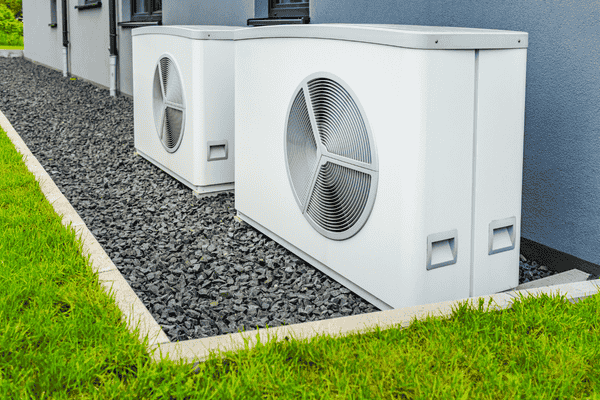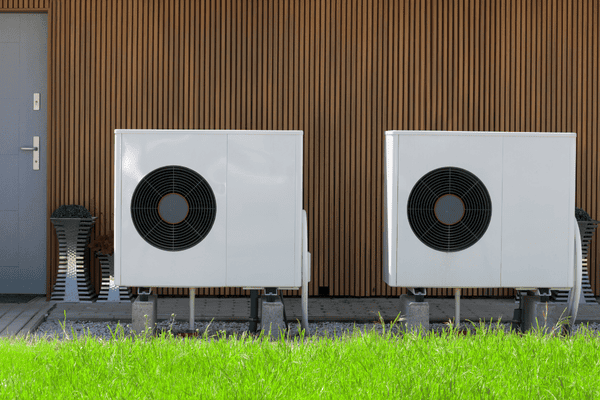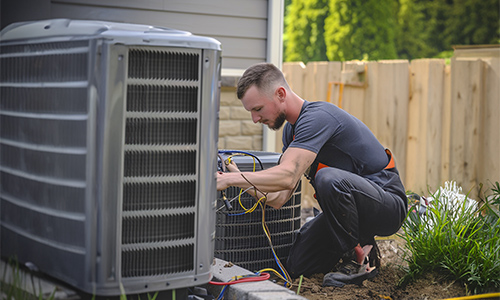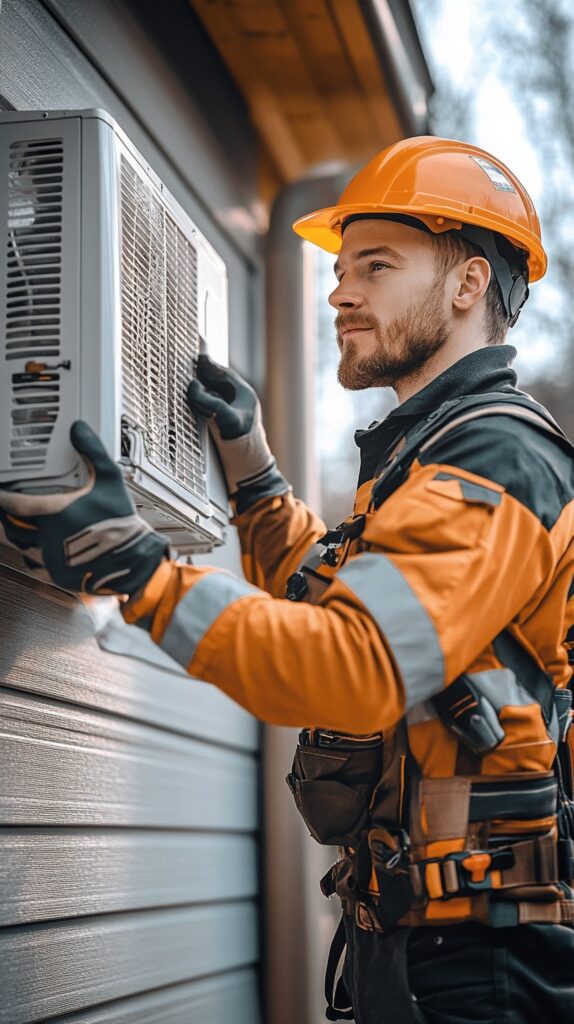Heat Pump Vs. Air Conditioner: Pros, Cons, And Cost Comparisons

Choosing between a heat pump vs. air conditioner is a key decision for Austin homeowners looking for the most efficient and cost-effective way to stay comfortable year-round. While both systems provide cooling, heat pumps offer an added advantage by also supplying heating, making them a versatile option in mild winter climates like Austin’s.
Factors like climate, energy efficiency, long-term savings, and upfront costs play a major role in selecting the right system. In this guide, we’ll break down the differences between these two HVAC solutions and help you determine which one is the best fit for your home in Austin, Texas.
What’s the Difference Between a Heat Pump Vs. Air Conditioner? (It’s How They Work)
At first glance, heat pumps and air conditioners might seem identical, but they function differently in key ways.
How Air Conditioners Work

An air conditioner (AC) is designed exclusively for cooling. It removes warm indoor air and releases it outside using a compressor, evaporator coil, and refrigerant.
Key Features:
- Works only in cooling mode—requires a separate heating source (like a furnace) in winter.
- Ideal for hot climates where heating demand is minimal.
- More affordable upfront compared to heat pumps.
Why This Matters for Austin: In Central Texas, winters are typically mild. That’s why many Austin homeowners pair an air conditioner with a furnace, since heating is only needed occasionally.
How Heat Pumps Work
A heat pump functions just like an AC when cooling, but it has a game-changing advantage—it can reverse the process and provide heat.
Key Features:

- Two-in-one system – Provides both cooling in summer and heating in winter.
- Extracts heat from outdoor air (even in cold weather) and transfers it indoors.
- More energy-efficient than traditional furnaces in moderate climates.
Types of Heat Pumps:
- Air-source heat pumps – Most common, uses outside air.
- Geothermal heat pumps – Uses underground temperatures, more efficient but costly upfront.
Why This Matters for Austin: Since Austin winters rarely drop below freezing, heat pumps can comfortably heat most homes without the need for a gas furnace, offering year-round efficiency.
Heat Pump vs. Air Conditioner: Which Is Best for Your Home?
Choosing between a heat pump and an air conditioner depends on several factors, such as climate, energy efficiency, and initial budget. Here’s what you should consider:
Consider Your Climate
Mild and Moderate Climates (Like Austin!):
✔ A heat pump is a great option because it provides efficient heating and cooling without needing a separate furnace.
✔ Since Austin rarely experiences extended freezing temperatures, a heat pump can handle heating needs efficiently.
Colder Climates (Not Austin!):
✔ An air conditioner + furnace combo works best in areas with harsh winters, where a gas furnace provides better heating than a heat pump.
Energy Efficiency & Year-Round Performance
Heat Pumps:
- Highly efficient in moderate climates, reducing energy use year-round.
- Uses electricity instead of gas, lowering emissions.
- ❌ Less efficient in extreme cold, requiring electric backup heating.
Air Conditioners:
- Very efficient at cooling but needs a separate heating source.
- ❌ Higher winter heating costs if paired with electric resistance heating.
Austin Relevance: Since Austin doesn’t experience extreme cold, a heat pump is a great energy-efficient option.
Upfront Costs vs. Long-Term Savings
Installation Costs:
- Heat Pump: $4,000 – $10,000 (higher upfront due to dual functionality).
- Air Conditioner: $3,000 – $7,500 (lower upfront cost, but needs a separate heating system).
Long-Term Savings:
- Heat pumps reduce heating costs in mild winters, making them a better long-term investment.
- Austin Energy rebates can help offset heat pump installation costs.
Austin Relevance: Heat pumps save money over time due to Austin’s mild winter climate, and energy rebates make them even more attractive.
Lifespan & Maintenance Costs
Durability & Upkeep:

- Heat Pumps (10-15 years): Require more maintenance due to year-round operation.
- Air Conditioners (15-20 years): Last longer with seasonal use, requiring less maintenance.
Austin Relevance: If you want less maintenance over time, an AC + furnace setup may require fewer service calls. However, the heat pump’s efficiency can outweigh the added upkeep.
FAQ- Heat Pump Vs. Air Conditioner
–Are heat pumps or air conditioners better for Austin’s climate?
A heat pump is typically the best choice for Austin homeowners because it provides both heating and cooling efficiently. Since Austin has mild winters and hot summers, a heat pump can handle year-round comfort without needing a separate furnace.
However, if you already have a furnace, an air conditioner is still a cost-effective cooling solution.
–Which system lasts longer: a heat pump or an air conditioner?
Air conditioners generally last longer because they are only used in summer, while heat pumps run year-round for both heating and cooling.
- Heat Pump Lifespan: 10-15 years (due to continuous use).
- Air Conditioner Lifespan: 15-20 years (less wear and tear).
If maintenance and longevity are a priority, an air conditioner + furnace combo may require fewer service calls.
–Which system is better for lowering my energy bills?
A heat pump can lower your overall energy bills in Austin by replacing a separate heating and cooling system with one energy-efficient unit.
If you already have a furnace, an air conditioner may be the better choice for cooling, since your furnace will still handle winter heating.
The best way to lower energy bills is to choose a system based on your home’s specific needs and ensure proper installation and maintenance.
Which One Should You Choose? A Decision-Making Guide

Still unsure whether a heat pump or an air conditioner is right for your home? Consider these key factors:
✔ Live in a warm climate? → An air conditioner paired with an efficient furnace may be the better option.
✔ Prefer higher efficiency? → A heat pump provides energy savings, especially in moderate climates.
✔ Looking for an eco-friendly option? → Heat pumps run on electricity instead of gas, reducing your carbon footprint.
✔ Interested in financial incentives? → Many utility companies & government programs offer rebates & tax credits for heat pump installations.
Final Verdict: The Right Choice for Your Comfort and Budget
In the heat pump vs. air conditioner debate, the best choice depends on your home’s location, comfort needs, and budget. If you live in a region with mild winters and want a dual-function system, a heat pump is a great investment. On the other hand, if you already have a furnace or live in a colder climate, an air conditioner might be the more practical and cost-effective solution.
Need expert guidance? At Livinon Mechanical, we specialize in helping homeowners in Austin, Texas, choose the best HVAC system for their needs. From air conditioning installation to preventative maintenance, our team is committed to keeping your home comfortable year-round.
Need Help Choosing? Contact Livinon Mechanical!
Choosing between a heat pump or an air conditioner in Austin’s climate doesn’t have to be complicated. Our licensed HVAC experts at Livinon Mechanical will help you find the most energy-efficient, cost-effective solution for your home.
Call us today at (737) 308-0506 for a free consultation!
Schedule an appointment online—we serve Austin & surrounding areas!
